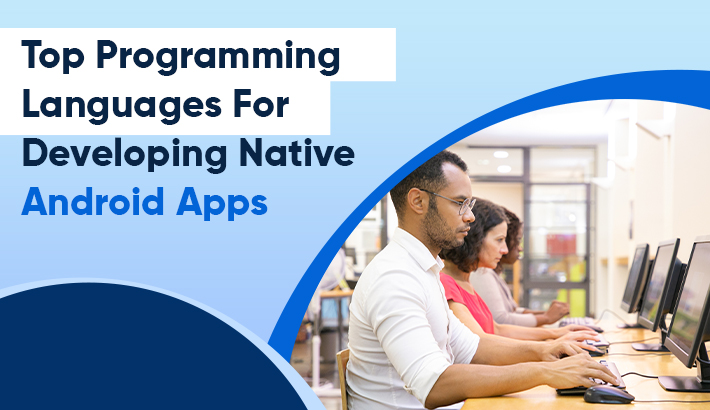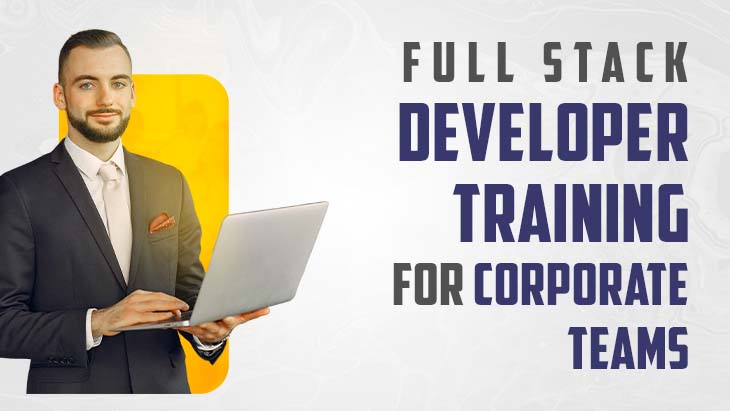Android is one of the most widely used mobile operating systems globally, with millions of users and a vast array of applications available on the Google Play Store. To develop high-quality native Android apps, choosing the right programming language is crucial. In this article, we will explore the top programming languages for native Android app development, their features, advantages, and use cases.
1. Java: The Traditional Choice
Java is the official programming language for Android app development and has been the primary language for Android since its inception. It offers several advantages for native app development:
Mature Ecosystem: Java has been used for Android development for over a decade, resulting in a rich ecosystem of libraries, tools, and resources.
Strong Community Support: A vast and active developer community is available to provide assistance and share knowledge.
Cross-Platform Compatibility: Java applications can run on various platforms, making it a versatile choice for developers.
Java is suitable for a wide range of app types, from simple utilities to complex enterprise applications. However, it can be verbose and sometimes less efficient than other modern languages.
2. Kotlin: The Modern Replacement
Kotlin is a more recent addition to Android app development and has quickly gained popularity due to its modern features and improved syntax. Some advantages of using Kotlin for Android development include:
Concise and Readable Code: Kotlin offers a more concise and expressive syntax, reducing boilerplate code and making codebases easier to maintain.
Interoperability: Kotlin seamlessly interoperates with Java, allowing developers to transition gradually and leverage existing Java codebases.
Null Safety: Kotlin's type system includes null safety features, reducing the likelihood of null pointer exceptions.
Official Language: Google announced Kotlin as an official language for Android development, further solidifying its status.
Kotlin has become the preferred choice for many Android developers due to its modern approach, reduced verbosity, and improved safety. It is particularly well-suited for new projects and for improving existing Java-based Android applications.
3. C++: For High-Performance Apps
While Java and Kotlin are the primary languages for Android app development, C++ can be used when high performance is critical. C++ is well-suited for scenarios such as game development, where performance and control over system resources are essential.
High Performance: C++ allows developers to write code that can directly access and manipulate system resources, making it suitable for high-performance applications.
Native Development Kit (NDK): Android NDK provides tools and libraries to integrate C++ code with Android applications.
Cross-Platform Development: C++ can be used for cross-platform development, as code written in C++ can run on various platforms.
C++ is less common for typical Android app development but is indispensable for certain types of apps that demand the utmost performance and control over system resources.
4. Dart (Flutter): Cross-Platform Development
Dart is the primary programming language for developing applications using the Flutter framework. While Flutter is a cross-platform framework, it is increasingly being used to build native Android applications. Advantages of using Dart and Flutter for Android app development include:
Highly Customizable UI: Flutter provides a wide range of widgets and tools to create highly customizable and responsive user interfaces.
Hot Reload: Developers can make changes to their code and instantly see the results, speeding up the development process.
Single Codebase: Flutter allows developers to write a single codebase that can be used to build apps for both Android and iOS platforms.
Community Growth: The Flutter community is growing rapidly, leading to a wealth of resources and plugins.
Dart and Flutter are excellent choices for creating native Android apps when cross-platform compatibility and a highly customized user interface are priorities.
5. React Native (JavaScript/TypeScript): Cross-Platform Development
React Native, developed by Facebook, is another cross-platform framework that allows developers to create native Android applications using JavaScript or TypeScript. Key advantages of using React Native for Android app development include:
Reusability: Code written in React Native can be reused across different platforms, saving development time and effort.
Large Ecosystem: React Native has a large and active community, resulting in a broad range of libraries and components available.
Performance: React Native provides native-like performance by rendering components using native APIs.
Hot Reloading: Similar to Flutter, React Native offers a hot reload feature for rapid development.
React Native is a good choice when you need to develop an Android app that can also run on iOS and other platforms, sharing a significant portion of the codebase.
6. Python (Kivy): For Cross-Platform Mobile Apps
While Python is not the first choice for native Android development, it can be used for cross-platform mobile app development through frameworks like Kivy. Some advantages of using Python with Kivy include:
Cross-Platform Development: Code written in Python with Kivy can be used to build applications for various platforms, including Android.
Ease of Learning: Python is known for its simplicity and readability, making it accessible for developers with different backgrounds.
Community and Libraries: Python has a robust developer community and a vast ecosystem of libraries and frameworks.
Python, when used with Kivy, is a suitable choice for cross-platform mobile app development. However, it may not provide the same level of performance and native integration as Java, Kotlin, or C++.
Choosing the Right Language for Your Android App:
The choice of programming language for your Android app should depend on several factors, including the nature of your project, your team's expertise, and your specific requirements. Here are some guidelines to help you make an informed decision:
Java: Choose Java if you have an existing codebase in Java, require a well-established and stable environment, or are developing a traditional Android app.
Kotlin: Opt for Kotlin if you are starting a new project, value modern language features, and wish to benefit from enhanced readability and safety.
C++: Use C++ when you need maximum performance, have experience with the language, or are developing resource-intensive applications.
Dart/Flutter: Consider Dart and Flutter for cross-platform development, highly customizable UIs, and rapid development.
React Native (JavaScript/TypeScript): Choose React Native for cross-platform development, code reusability, and a vibrant community.
Python (Kivy): Use Python with Kivy for cross-platform development if you are already familiar with Python or require a quick development cycle.
It's worth noting that some projects may benefit from a combination of these languages. For example, you can use Java or Kotlin for the core functionality of your Android app and incorporate C++ or Dart for specific performance-critical or UI-intensive components.
Conclusion:
Selecting the right programming language for native Android app development is a critical decision that can impact the success and efficiency of your project. The choice should align with your project's requirements, your development team's expertise, and your long-term goals. While Java and Kotlin are the most popular and official choices, C++, Dart, and React Native provide valuable alternatives for different use cases. Ultimately, the success of your Android app will depend on the proficiency of your development team and their ability to harness the strengths of the chosen programming language to deliver a high-quality, user-friendly application.





Leave a reply